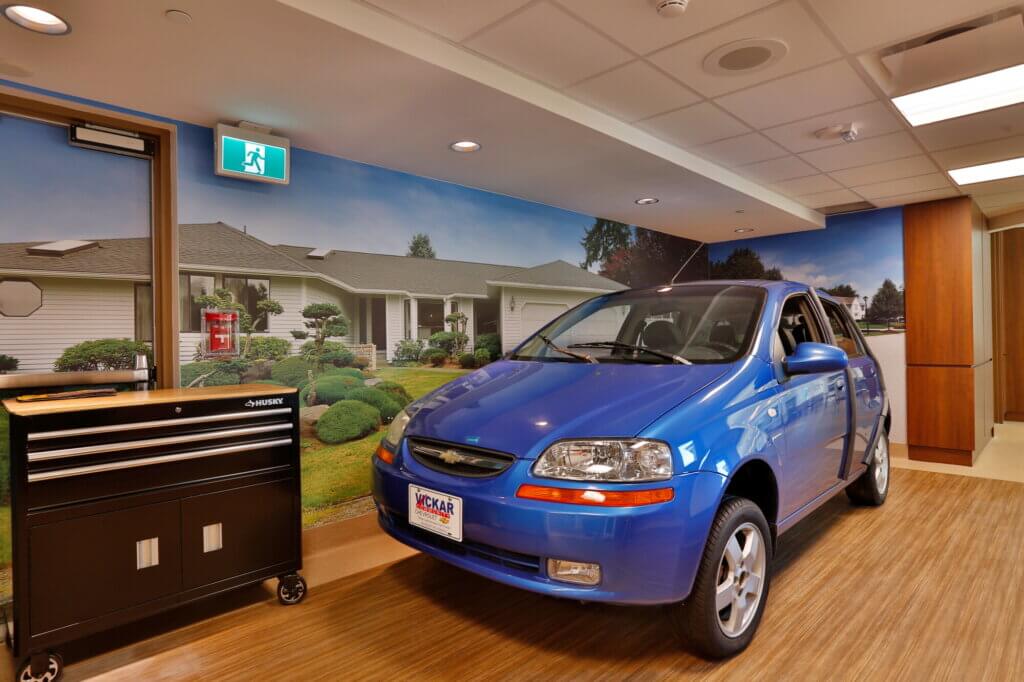Innovative Care on the Virtual Road: Alzheimer’s Research at Riverview
Research
Many people love the feeling of being on a country road, having the wind on their faces, and anticipating the adventure in front of them. This feeling and the love of driving is still a core memory for many residents who live within the Alzheimer’s Centre of Excellence here at Riverview Health Centre (RHC).
This is one of the key reasons a real car was included when the Alzheimer’s Centre of Excellence opened in 2019. It is stationary, but residents enjoy cleaning, mapping out road trips, and sitting in it. It is familiar to them, a reminder of their youth.
Dr. Zahra Moussavi, PhD. is leading a new research project, funded through the support of generous donors to RHCF in matching partnership with MITACS, utilizing this car, which aims to improve the quality of life for residents with advanced Alzheimer’s, and also to investigate the plausible implicit learning that may occur if they use the program repeatedly.
The study transforms the car into a virtual reality driving simulator by placing a projector on the backseat, which then projects a country road onto the inner windshield. The simulator has a real steering wheel, pedals, and a fan to minimize plausible motion sickness and maximize comfort. The projection transports drivers to a peaceful country road accompanied by birds singing.
A demo shows the participant the path they should take to reach a destination. However, there is no penalty for not finding the location nor passing a red light or stop sign without stopping; though, if they get to the desired destination they will be rewarded by a firework and audio sound of “Good Job!”. The simulator logs every move of the participants; it tests drivers on their skills, ability to avoid curbs, stop at red lights, obey the rules of the road, etc. There are various levels of difficulty, so Dr. Moussavi and her team can track the skill growth of the participant.
Dr. Moussavi’s main goal with this study is to lift the moods and spirits of residents with Alzheimer’s. A sense of belonging and comfort can be returned to residents by “driving” again.
But this journey is not just about finding peace on the road. The study also aims to determine if any implicit learning occur in residents with advanced Alzheimer’s. Implicit learning means one may learn something new and develop a skill without consciously realizing it. This implicit learning will be assessed by the driving simulator performance log that is automatically stored when a user drives the virtual car. The impact of this research extends beyond Alzheimer’s treatment. The research can be applied to many people, including those with brain injuries or those who cannot drive a car for any reason.
The roadway options can change depending on the application, with the help of Google Maps it can be designed to be a driving through a city anywhere in the world.
At Riverview Health Centre, the journey towards progress is fueled by compassion, innovation, and the unwavering support of donors. Together, we chart a course toward a future where every individual, regardless of circumstance, can embark on a journey of dignity, purpose, and hope.

